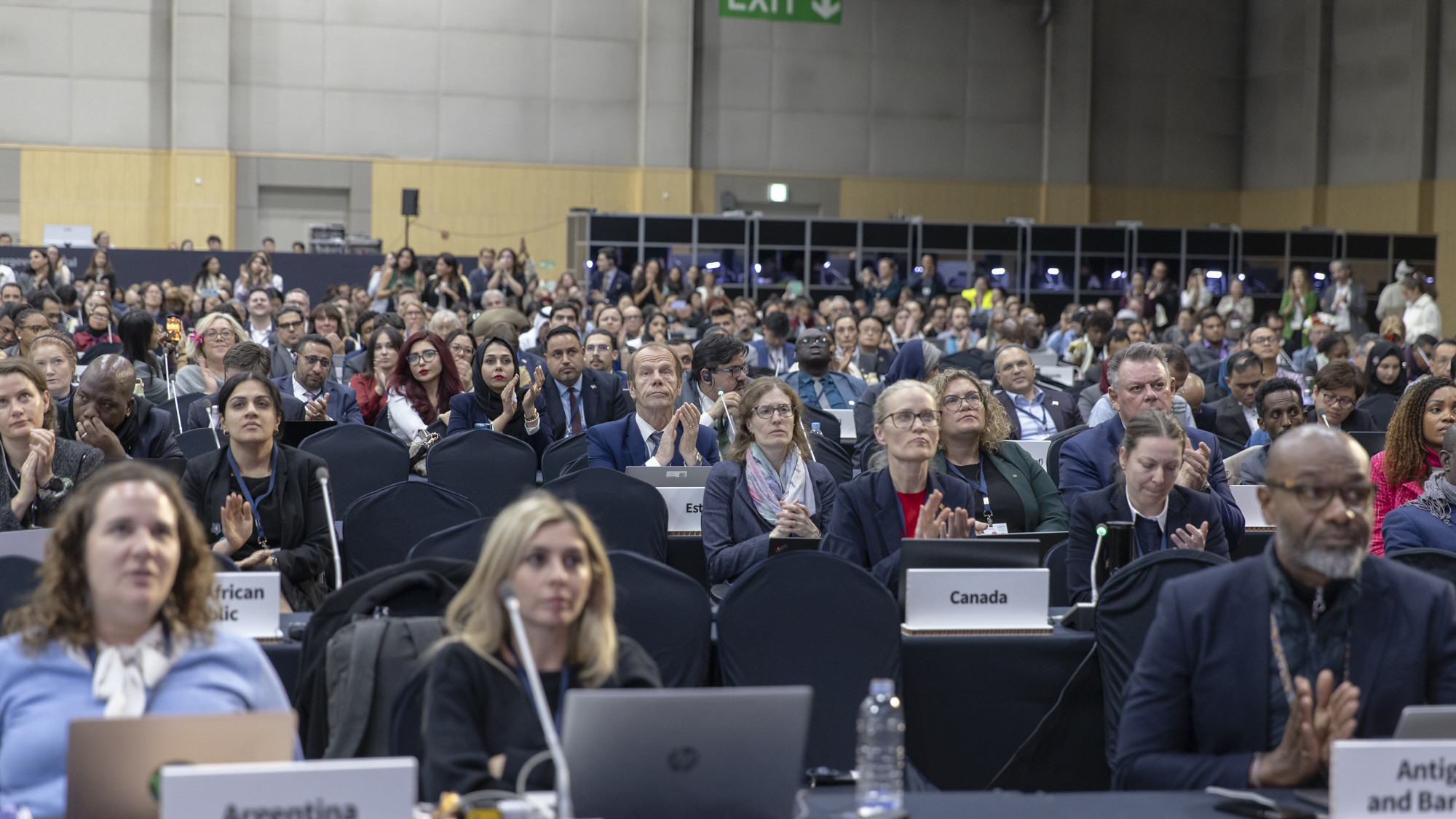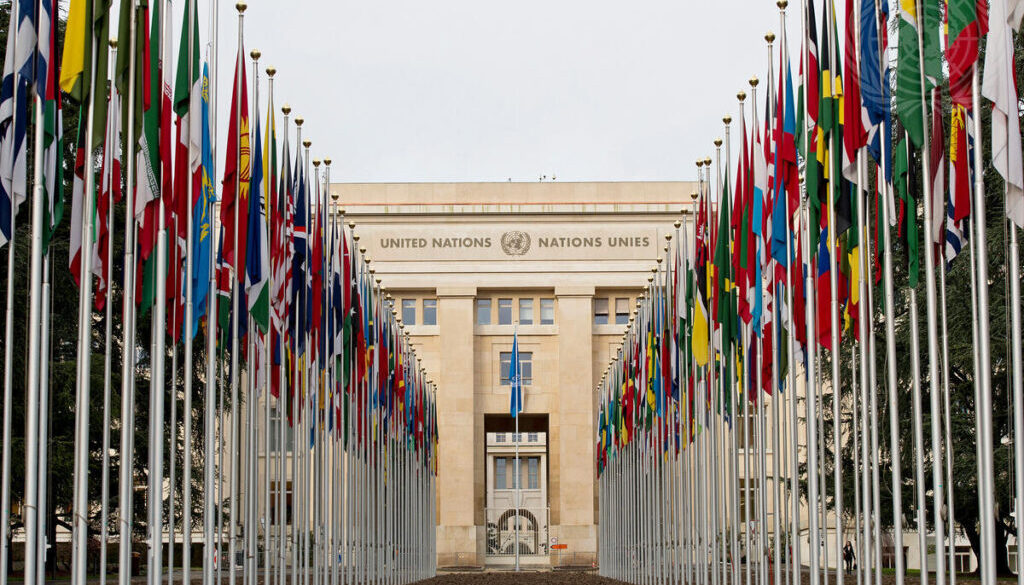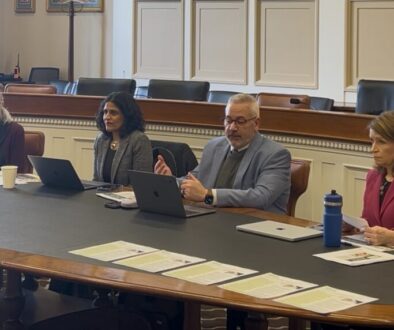New report calls plastics a “grave” danger to health as nations negotiate treaty
Listen to the audio version of this article (generated by AI).
Plastics are a “grave” danger to humans and the planet, responsible for an estimated $1.5 trillion annually in health-related costs, and nations need to center human health as they finalize the global plastics treaty, scientists said in a new report released Monday.
The report, The Lancet Countdown on health and plastics, warns that increased plastic production is behind this massive economic loss and “global plastic output is on track to nearly triple by 2060.” The report was published as leaders from nations around the world gather in Geneva, Switzerland, this week for the sixth round of global plastic treaty talks.
The impacts of plastic production and pollution “result in huge economic costs to society,” Dr. Philip Landrigan, lead author and director of the Global Observatory on Planetary Health at Boston College, said in a statement. “To those meeting in Geneva: please take up the challenge and the opportunity of finding the common ground that will enable meaningful and effective international cooperation in response to this global crisis.”
“To those meeting in Geneva: please take up the challenge and the opportunity of finding the common ground that will enable meaningful and effective international cooperation in response to this global crisis.” -Dr. Philip Landrigan, Boston College
The Lancet report also marked the start of a new global plastic monitoring system called “The Lancet Countdown on health and plastics,” which will track a wide range of indicators of plastic, health and solutions. “What is measured can be managed,” Jane Muncke, managing director and chief scientific officer at the Food Packaging Forum and report co-author, said during a panel announcing the report in Geneva on Monday.
In 2022, nations agreed to develop an international, binding treaty on plastic pollution, and since then there have been a series of meetings convened by the United Nations Environment Programme (UNEP). The latest – and possibly final – round of talks, which start Tuesday, will include representatives from 179 countries, as well as scientists, environmental advocates, industry representatives, and others.
The Lancet report is designed to give these leaders the latest information on how the full life cycle of plastics impacts human and environmental health. It warns that roughly 8 billion metric tons of plastic waste pollute Earth and that the entire lifecycle of plastics— from the fossil fuels used for feedstock to production and transportation to use and disposal — causes “disease, disability, and death.”
“Plastic products leach chemicals and release micro- and nanoplastics into the water we drink, the food we eat and the air we breathe,” co-author of the new report Martin Wagner, a biologist at the Norwegian University of Science and Technology, said during the Monday panel.
There are more than 16,000 chemicals in plastics. Scientists don’t have data on the potential hazards for more than two-thirds of these chemicals, but many are known to harm health, including phthalates, bisphenol-A (BPA) and per- and polyfluoroalkyl substances (PFAS).
Beyond the ingestion of plastic, the report points to the myriad ways plastics harm health, including by increased greenhouse gas emissions that warm our climate and plastic production that releases harmful pollutants such as particulate matter (PM2.5), sulfur dioxide, nitrogen oxides and other hazardous chemicals. The authors estimate PM2.5 emissions from plastic production alone are responsible for about 158,000 premature deaths annually around the world.
The worst impacts from plastics’ lifecycle are felt in low-income communities, the report says.
Jo Banner, co-founder of The Descendants Project, an organization focused on the well-being of the Black descendant community in the Louisiana river parishes, talked about the acute impacts of plastic production in Louisiana’s “Cancer Alley” — a stretch of fossil fuel and petrochemical industries along the Mississippi River between New Orleans and Baton Rouge.
“We have a population that is sacrificed for our economy,” Banner said at the Monday panel. “Our area is called Cancer Alley, but it could also be called asthma alley, anxiety alley, heart attack alley. There are all types of health impacts we witness in our community.”
However, the report says this crisis does not have to continue.
“Development and implementation of this treaty creates a unique opportunity to reduce plastics’ harms throughout the plastic lifecycle and to safeguard human and planetary health,” the authors wrote.

Consensus has been elusive at treaty talks so far. Countries haven’t agreed on whether the treaty should address the entire lifecycle, as the Lancet report suggests, or to focus solely on plastic waste. There is a High Ambition Coalition of countries that wants an end to plastic pollution by 2040. There is also a bloc of nations — including Saudi Arabia, Russia, Iran and others — pushing for a larger focus on addressing plastic waste (via chemical and mechanical recycling and other means) rather than bans or production limits.
The last round of talks in December 2024 ended with a revised document that did little to push talks forward. And the Trump administration has signaled that it will push for a treaty to focus on recycling and waste disposal rather than on the whole lifecycle. The talks come as the administration has made environmental deregulation a key part of its agenda.
UN Environment executive director Inger Andersen expressed optimism that there will be an agreement in Geneva. “We will not recycle our way out of the plastic pollution crisis: we need a systemic transformation to achieve the transition to a circular economy,” Andersen said in a statement.
The Geneva plastic treaty talks will take place Tuesday through August 14. Follow the talks live here.
Featured image by UNEP.




August 6, 2025 @ 1:44 pm
Well, This is enlightening. Where are all the other reports on this information?
Surely there’s a way to get the news to farm magazines, gardeners, and other stakeholders in this situation.
I’m a retired lady, and still a homemaker. I recently had a water test performed so I could consider what kind of water filtering system I might need for my entire home.
After the test showed how horrible my water really is, which was no surprise to me, I sat at my kitchen table and remembered all the chemicals my husband had applied to our vegetable gardens over the years. Also, he worked on a golf course and applied many dangerous chemicals to the grounds.
The tests showed how much contamination we had coming in with each glassful.
Mr. Trump simply must listen to those who know about chemicals and decide he will do something extraordinary that no president has done before….listen to the people.